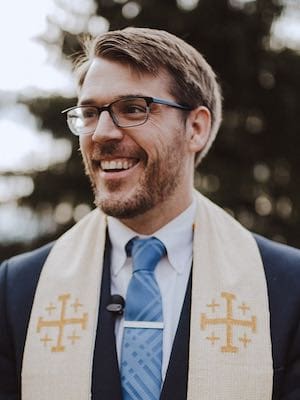I’ve been pastoring traditional, Baptist churches for four years. I’ve worked in them for six.
In these years I’ve heard the cries of God’s people. I’ve listened to their stories, and a lot of these stories are similar – even though the geography isn’t.
It’s as if the Southern, mainline, Protestant (particularly Baptist) circles carry a collective consciousness.
There appears to be a single, unifying theme in which everyone nods in agreement. And to be honest, I’m bothered by it.
This unifying theme is, “We think we’re dying, and we don’t have much more to offer God.” This is the saddest picture I can imagine for the church.
It may help, though, to know this isn’t the first time God’s people have reacted this way. Have you ever read Isaiah?
When these Judeans returned from exile – back to their homeland, back to where they used to worship – and see a city that is but a shadow of what it used to be, they almost drown in despair.
Homes lie in ruins, crops are withered and the temple is reduced to gravel. And the people around to rebuild all of this aren’t even the ones who saw it destroyed. They were born into this mess of a life.
To rebuild a burnt city, wasting energy and time for what appears to be no reason, sparks little to no creativity.
It’s as if you can hear the Judeans’ collective consciousness saying, “We’re dying, and we don’t have much more to offer God.”
We are similar to post-exiled Judeans.
We look at the work it’s going to take to rebuild our mainline churches and we’re met with anguish, difficult times and frustration.
We feel little to no creativity after examining the debt and despair that creeps past the sanctuary doors.
We feel the work it’s going to take to become a necessary influence on the community is enough to cause anyone to give up and walk away.
So instead of influencing anybody, we just tell stories of how it used to not be this way.
We retreat inward, knowing it’s too painful to think about what we’re not. And, honestly, we find ourselves saying, “I think our movement is dying. We have very little to offer God. Why should we even bother?”
We should “bother” because the Spirit of the Lord is upon us, bearing God’s message for the world. We can never forget this.
God’s church isn’t dying; we’re on the cusp of thriving. As Eugene Lowry says, “We’re dancing the edge of mystery.” It’s for this reason we must gather together and change our collective consciousness.
The future for the church lies in the hearts and souls of each of us. But as long as we are a people who care more about retreating inwardly, giving up on being an outward expression of God’s kingdom, then this collective consciousness remains.
If we choose, though (and I believe it’s our choice), to become passionate about social justice, offering peace instead of war, giving hope to a future that needs it, educating all people, loving all people, blessing all people, practicing authentic spirituality, worshiping as a community, and praying for the brokenhearted, then the church is forever needed.
We can escape the turmoil in our own exile when we realize the church isn’t dying.
We just have to start listening to the voice of the living God in each of us. That voice is telling us to change our collective consciousness.
I no longer see myself pastoring a dying church. I see myself pastoring God’s people, who are a few strokes away from offering something worth living for, community, love and identity to all who need it.
When our collective consciousness changes, the church will, too.
J. BarrettOwen is the admissions associate at the McAfee School of Theology of Mercer University as well as pastor at National Heights Baptist Church in Fayetteville, Ga.
Senior pastor of First Baptist Waynesboro in Waynesboro, Virginia. He is a member of Good Faith Media’s strategic advisory board.

